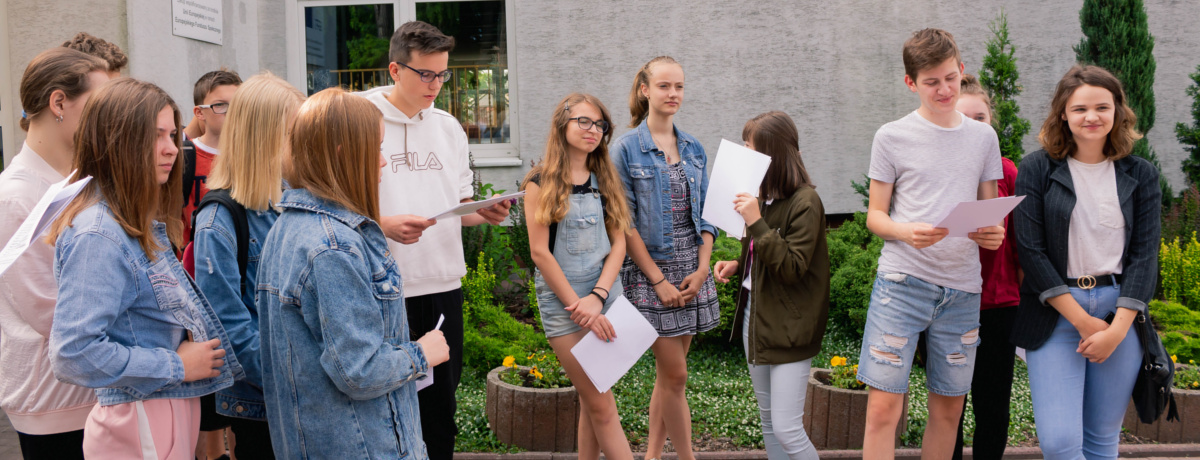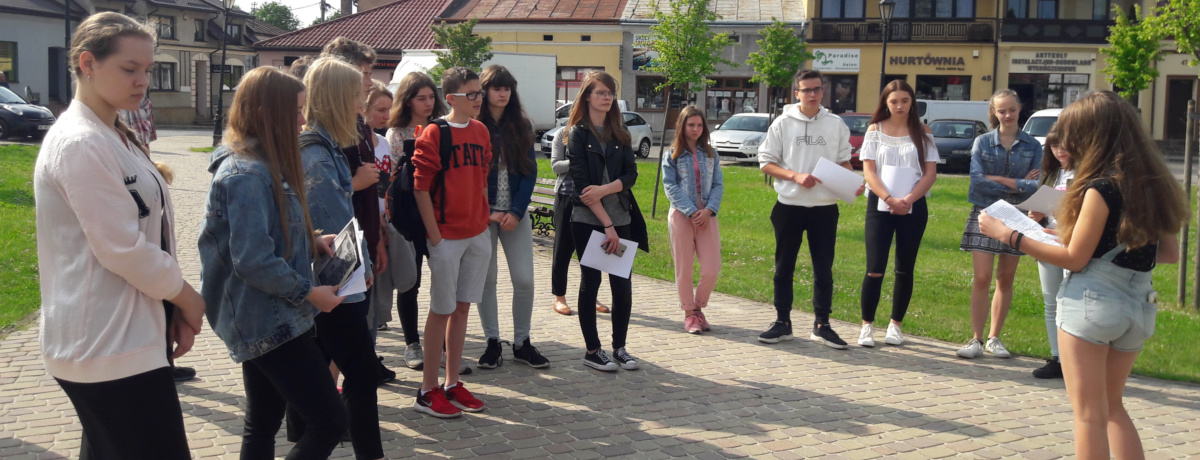| 2018 |
Głogów Małopolski
Primary School in Głogów Małopolski


| 2018 |
Jewish history of Głogów Małopolski dates back to the 17th century. The number of residents practicing Judaism would fluctuate over the years, but from the end of the 19th century it would oscillate around 1/3 of the local population. Today there are hardly any material traces of Jewish presence in the town. The synagogue did not survive World War II and the two Jewish cemeteries had been vandalized, with the tombstones plundered (although the ohel at the older cemetery had been reconstructed and plaques commemorating local tsaddiks had been added). There are still mass graves between Głogów and Rzeszów that contain remains of 5300 local residents who had been executed by Nazi commandos between 1939 and 1944. Some 5000 of these residents were Jews.
Local school students decided to get involved in preserving the memory of these Jewish residents.
Thirty-two young people including seventh-graders from the local elementary school and freshmen from the local high school participated in the School of Dialogue workshops which resulted in a student-led walking tour through Jewish Głogow on June 12, 2018.
Before the tour took place, students had a lot of work to get done. Apart from their teachers, School of Dialogue project supervisors, they were supported in their quest for information by the director of the Municipal Library, where students spent many long hours. Project participants also spoke to local historians and residents who remembered Jewish residents. They also ensured adequate promotion of their walking tour by inviting distinguished guests and distributing posters for the event throughout the town.

The walking tour was attended by 70 people including school students from Głogów Małopolski, the mayor, the director of the Municipal Library, principals from both paritcipating schools as well as curious residents. The group walked through the main square (Rynek) and streets where Jewish residents once lived, visited the site of the synagogue and the two cemeteries as well as Bór forest outside town limits, where many Jews met their tragic fate during the German occupation. However, it was not just death, but also – and first and foremost – the life of Głogow’s Jews that was discussed. The tour was followed by a history session in the elementary school, which was attended by a local historian and a “witness to history”. During the session, students recounted their participation in the School of Dialogue workshops and presented a film documenting the interviews they had conducted while preparing for the tour. A quiz concluded the meeting. Guests were also invited to dry delicious baked goods: a traditional Jewish carrot cake made by the students themselves and hallah breads donated by a municipal co-op.
Additionally, students prepared information booklets and an exhibition on the history of Głogów’s Jews which included archival photographs, an old store sign and a prewar school yearbook with entries written by Jewish students.
It should be mentioned that students were supported in their actions by the local community: aside from teachers and parents, local historians and library director, Głogów companies became involved in the project. Local media including TVP Rzeszów TV station and “Ziemia Głogowska” newspaper reported on the project activities.
Students involved in the project decided to continue caring for mass graves in Bór forest as well as to participate in the Holocaust Day commemorations and present their work once again.

School: Primary School in Głogów Małopolski
Students: History Club, students from different classes
Teachers: Małgorzata Czech, Anna Białek
Educators: Magdalena Kaczmarek, Magdalena Ogieniewska-Małecka
Project cofinanced thanks to the generosity of Friends of the Forum, Conference on Jewish Material Claims Against Germany and individual donors and institutions from Poland and abroad supporting Forum for Dialogue.
In appreciation to the Conference on Jewish Material Claims Against Germany (Claims Conference) for supporting the School of Dialogue educational program. Through recovering the assets of the victims of the Holocaust, the Claims Conference enables organizations around the world to provide education about the Shoah and to preserve the memory of those who perished.